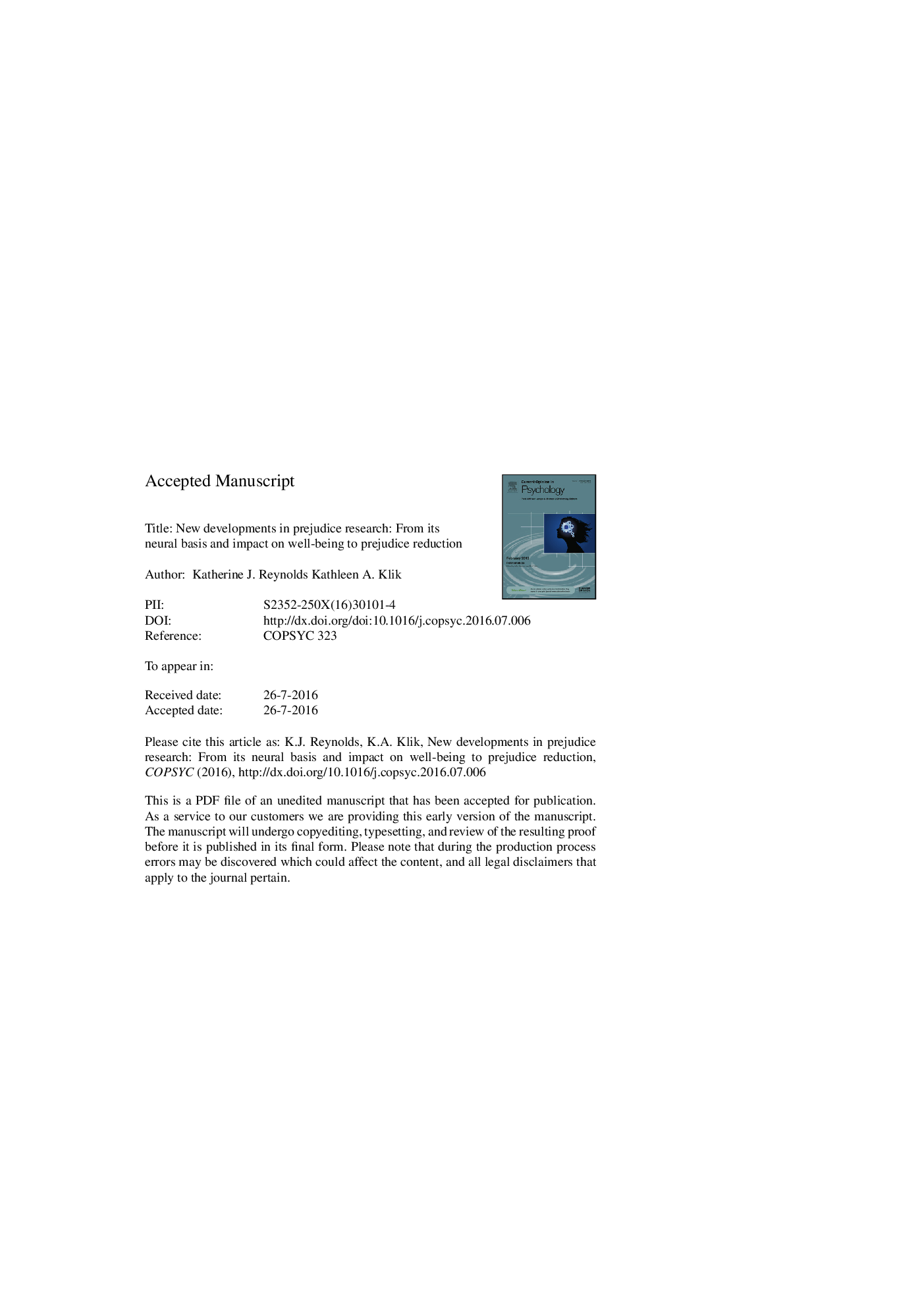| Article ID | Journal | Published Year | Pages | File Type |
|---|---|---|---|---|
| 7240073 | Current Opinion in Psychology | 2016 | 18 Pages |
Abstract
Ongoing social and political concerns surrounding immigration and increasingly diverse communities have generated interest in issues of prejudice, exclusion, and social cohesion. Social psychology for over 80 years has investigated the underlying processes that relate to one group having negative attitudes (prejudice) and treatment (discrimination) towards another. Emerging trends in research on prejudice include the (a) neural basis of prejudice (e.g., ingroup favouritism and ingroup-outgroup categorizations); (b) relationship between discrimination and victim health and well-being and the role of social identity, physiological mechanisms and biological factors; and (c) predictors of prejudice reduction. Prejudice research is entering an exciting phase through the intersection of well-evidenced theoretical frameworks, access to a broader range of predictors (biological mechanisms, social factors), and larger and more robust datasets (including longitudinal analysis) across multiple countries.
Related Topics
Social Sciences and Humanities
Psychology
Applied Psychology
Authors
Katherine J Reynolds, Kathleen A Klik,
